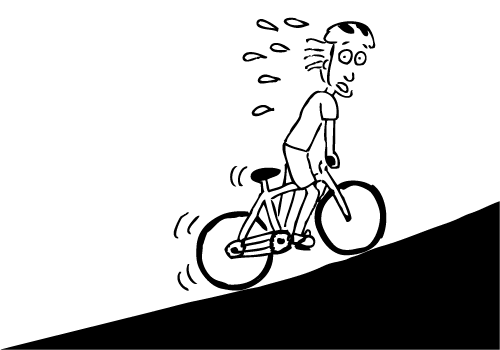
The days are getting longer, and the weather is getting warmer. That also means that for most cyclists, race season is drawing closer. After months of being confined to basement trainer sessions, the sunshine can tempt many riders to quickly increase their training level. Some may have also slacked off during the winter months and desperately try to rapidly gain fitness. And while cyclists most certainly should take advantage of the more pleasant weather, care must be taken to avoid overtraining during this time of year.
Increase training load gradually
Generally, it is recommended to increase training load no more than 10% per week. Conservatively, many follow closer to a 5-8% increase. However, since training load is a product of training volume and intensity, it can be somewhat difficult to calculate. Doing eight hours in a week where all of the riding takes places in Zones 1-2 is very different from eight hours with a lot of VO2 max intervals included. Using a Performance Manager Chart and monitoring both your acute (short term) and chronic (long term) training load is helpful because these data take both volume and intensity into account.
Include sufficient rest
This factor relates to the previous recommendation regarding training load. Oftentimes, recovery is one of the hardest aspects of training for motivated cyclists. However, your body needs time and recovery in order for it to adapt to the training demands placed upon it. Continually stressing your body day after day with no recovery time will not make you a faster rider. You become a faster rider when you rest after your hard training. Include at least one complete rest day every 7-10 days, and make sure that your recovery rides are, in fact, at recovery intensity!
Listen to your body
As you increase your training load, you will undoubtedly have some soreness and fatigue. However, if you still have significant soreness the next day and are lacking the energy for a high quality workout, this is an indication that you are not adapting well to the training and are not recovering. If you find yourself constantly fatigued and sore, take a rest day, decrease your training load, and be more conservative in your weekly increases.
Take care of your body
You can do everything right on the bike, but there are so many other variables that factor into your training success. A healthy, balanced diet that is filled with fresh fruits and vegetables, whole grains, lean protein, and limited processed food is going to provide your body vital nutrients that it needs. Additionally, adequate and quality sleep is imperative to give your body the time necessary to repair the muscle damage that occurs during training. As your training load increases, your sleep needs will most likely increase as well.
The weather this time of year is great for cyclists, and the start of the race season has everyone motivated and excited. Do not set yourself back by becoming over-trained before the season has even begun. Get out and ride, but train smart! Your race results will reflect it.
By Coach Liz Martin
